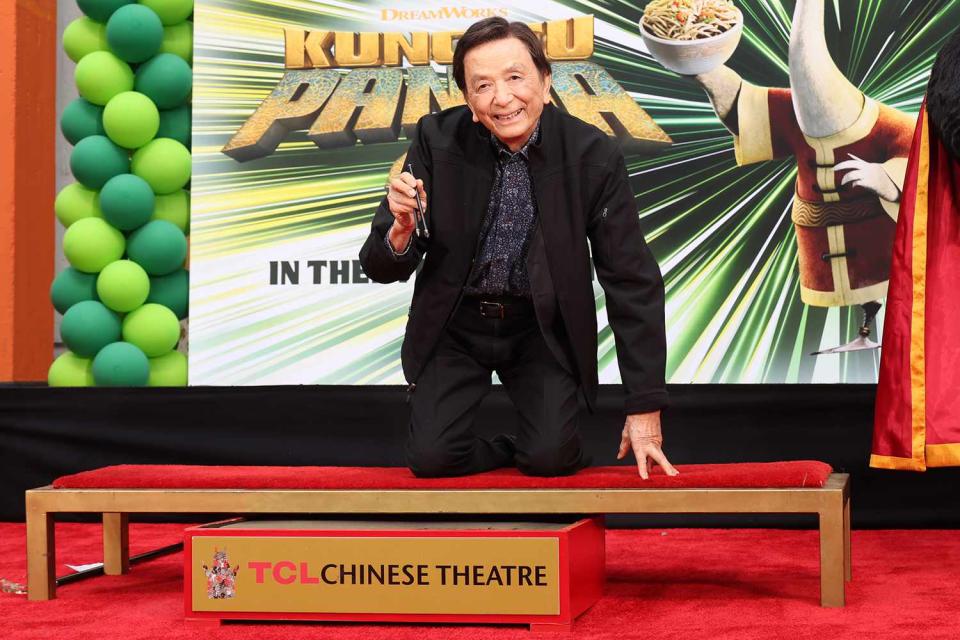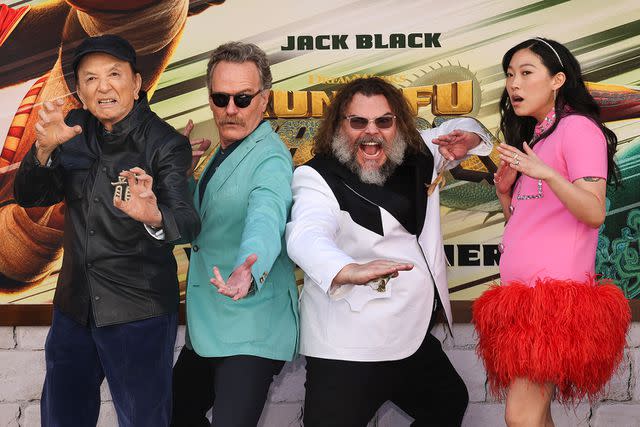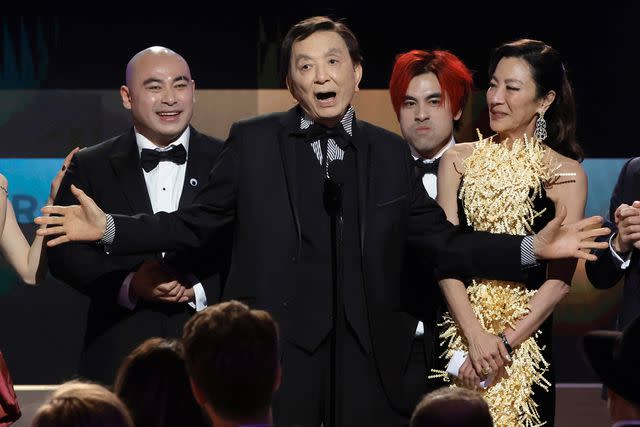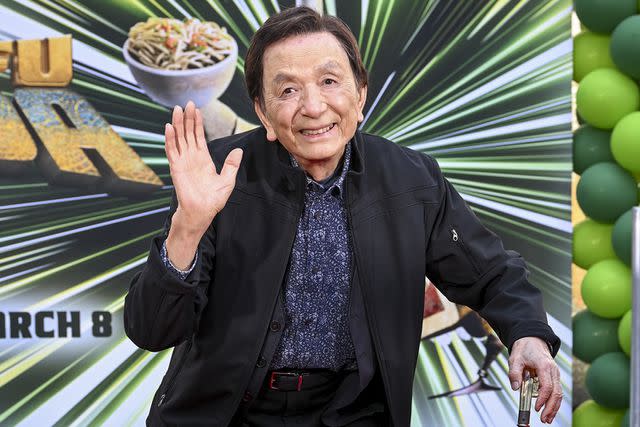“Everything Everywhere”'s James Hong 'Disappointed’ Asian Americans Are Not ‘Getting Their Fair Share' of Roles (Exclusive)
“I still think the percentage of Asian American actors being hired to be in the movies is awfully low,” says ‘Kung Fu Panda’ star James Hong

Amy Sussman/Getty Images
James Hong at his Hand and Footprint Ceremony at TCL Chinese Theatre Feb. 22Seven decades in, James Hong is something of an expert on Asian American representation in Hollywood.
“It's always on my mind, on my soul,” says the Everything Everywhere All at Once actor, who started working onscreen in the 1950s — when roles for performers of Asian descent were “cliché roles like the villain.”
“My first movie was Soldier of Fortune where I was a Communist soldier, and those were the only roles in those days for actors like myself,” Hong, 95, tells PEOPLE.
After that first screen credit — which, he notes, makes him “possibly the only actor alive that has worked with Clark Gable” — the Minnesota-born Hong accepted more and more bit parts, even if they were stereotypical antagonists. “I didn't care. I just wanted to exercise my craft,” he remembers.

Amy Sussman/Getty
(Left-right:) James Hong, Bryan Cranston, Jack Black and Awkwafina at the Los Angeles premiere of "Kung Fu Panda 4" March 3“Looking back, it was meant to be,” he adds. While studying civil engineering at the University of Minnesota and serving 18 months in the Armed Forces amid the Korean War, Hong maintained his childhood desire to act.
“I garnered all these hundreds of roles because, in a way, Hollywood was waiting for me,” he says. “I came out here to California and boom! Right away, it just stuck… It was the right person being in the right place at the right time.”
Although Hong became a fan favorite for voice roles in Mulan and the Kung Fu Panda franchise, plus scene-stealing appearances in Big Trouble in Little China and Seinfeld, it wasn’t until the Oscar-sweeping success of Everything Everywhere that he experienced a true career resurgence.
“All of a sudden, on the 70th year, things began to pop in place!” says Hong, who in 2022 was given his star on the Hollywood Walk of Fame and on Feb. 22 — his 95th birthday — had his hands and feet immortalized in cement at the TCL Chinese Theatre also on Hollywood Boulevard.

Along with castmates Michelle Yeoh, Ke Huy Quan, Stephanie Hsu and Jamie Lee Curtis, Hong earned a Screen Actors Guild ensemble award for Everything Everywhere. When the movie won seven Oscars including Best Picture last year, it marked Hong’s first-ever attendance of an Academy Awards ceremony.
“We've come a long way,” he says of Asian and Asian-American talent. “Now we've got people who are winning awards, Oscars and recognition… I'm so glad we're being recognized.”
Related: Michelle Yeoh Says She 'Kung Fu'd' and 'Shattered' Glass Ceiling at Oscars 2023
But although there are now more than just Communist soldier roles available, Hong says, “I still think the percentage of Asian American actors being hired to be in the movies is awfully low.”
The actors following in Hong’s footsteps, he says, “are not getting their fair share of roles. A lot of my colleagues who are fairly good actors and actresses have to sometimes even quit or take on a side job. That's terrible, you know?”
Never miss a story — sign up for PEOPLE's free daily newsletter to stay up-to-date on the best of what PEOPLE has to offer, from juicy celebrity news to compelling human interest stories.

Gilbert Flores/Variety via Getty Images
James Hong at his Hand and Footprint Ceremony at TCL Chinese Theatre Feb. 22That’s part of what motivated Hong and other artists of Asian descent in 1965 to establish Los Angeles’ East West Players, the country’s first professional Asian American theater. The alumni list for the organization, still going strong today, includes Daniel Dae Kim, BD Wong and John Cho.
“America is where you have to fight for your rights, you have to speak,” Hong tells PEOPLE. “Asian American actors as a whole are still in the silent minority bracket. They come from a culture where they say, like my father and mother and grandparents, ‘Don't say anything that's going to get people all excited.’
Related: Oscar Winner Ke Huy Quan Says He's 'Worried' That His Comeback Success 'Is Only a One-Time Thing'
“That has been taught to many, many generation of Asian Americans, of Asians, period, and handed down to me in Minneapolis, where I was born,” he adds. “So I have to tell my colleagues, ‘You have to be vocal, you have to say something. You've got to have fair representation in this business and we're not getting the jobs that we should be getting.' Nobody's going to just come out and give you a job. You have to fight for it."
Hong acknowledges that Hollywood has “made some progress” when it comes to diversity, equity and inclusion. But “there has to be a lot more progress as far as I'm concerned. I won't be around to see it all, but I'm sure it will be on its way.”
Following his appearance on Disney+ series American Born Chinese, Hong is reprising his voice role as Chinese goose Mr. Ping, adoptive father to Jack Black’s panda Po, in Kung Fu Panda 4, in theaters now.
For more People news, make sure to sign up for our newsletter!
Read the original article on People.
